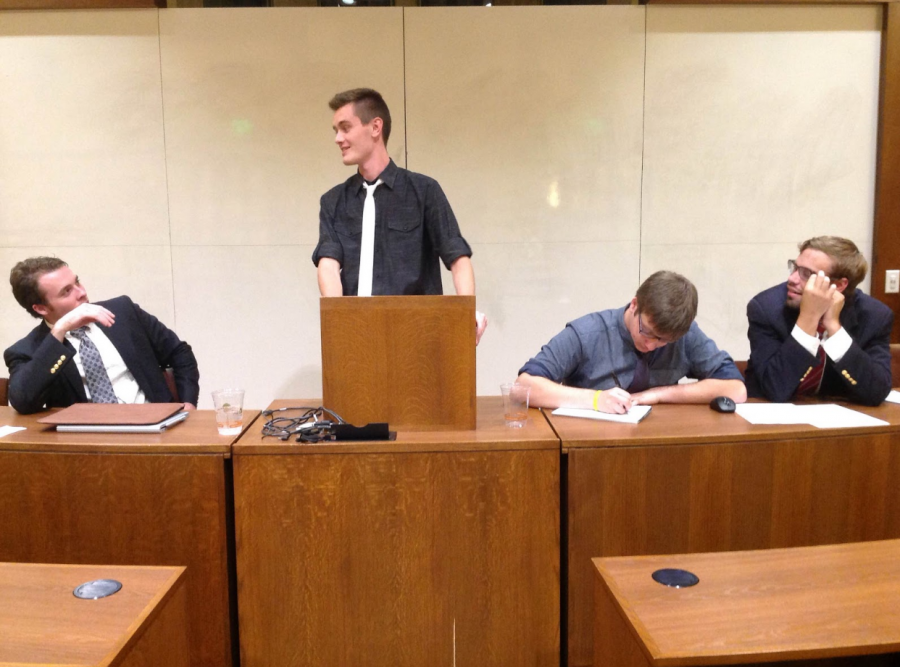The Vanderbilt College Republicans and Vanderbilt College Democrats discussed gun control in their first debate of the semester. While the debate had a few heated moments of contention, members of both organizations aimed to keep the debate civil and try to find common ground in their approach to gun control.
“The important thing to remember in this debate is that we all want the same thing here,” Vanderbilt Republicans member Sam Wolf said as he opened the town hall. “We all want to save lives, we all want to maximize people’s freedoms, and the question is how to go about it.”
We all want to save lives, we all want to maximize people’s freedoms, and the question is how to go about it.
The debate used a new format where speakers were given three minutes to talk and then answered two or three questions from the audience. While this opportunity was frequently used by members of the opposing organization to respond to that speaker, audience members outside of either organization also asked questions to get clarification or to challenge a point the speaker made.
“We changed the format to get people more involved,” said Vanderbilt College Republicans vice president John Adams. “In the past it had been just two people speaking on each side and questions at the end, which basically turned into like a lecture… I was really pleased with how the audience got really involved with the questions.”
This format increased the number of speakers from two to twelve, which allowed for viewpoints on gun control that went further than the majority of their parties to be expressed. One speaker for the Democrats proposed a ban on assault rifles, and a speaker for the Republicans advocated for the re-legalization of machine guns and suppressors.
“I think we heard a nice variety of perspectives, and a lot of people brought their own perspectives into it, so I think it went well,” said Vanderbilt Democrats member Melissa Cross after the debate.
The two organizations found some common ground in the debate as both groups supported universal background checks for owning guns. And after the debate ended, members of opposite organizations could be found shaking hands and continuing the discussion more casually.
The debate was part of a series of four debates this semester, the next of which is scheduled for Oct. 20.
“We definitely want to have more discussions like this because it starts dialogue,” said Vanderbilt Democrats president Anderson Monken, after the debate. “It makes people think about the issues that they’re passionate about… Coming to things like these gives the opportunity to hear an entirely different viewpoint, and sometimes it’ll change their mind. That’s how people can develop their political ideology.”

